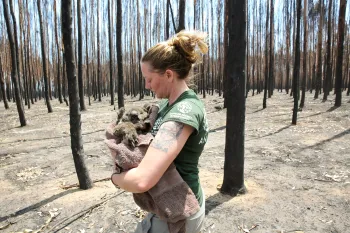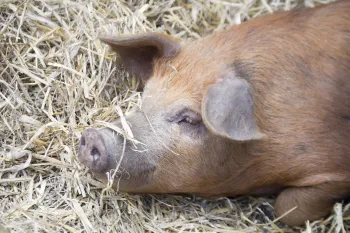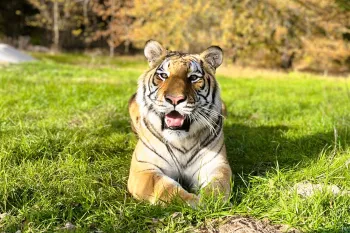Seventy years ago, it was the status quo for cows, pigs and other animals to experience prolonged suffering during slaughter. It was the norm for dogs, chimpanzees, rabbits, rats, mice and other animals being used in research and testing to suffer terrible neglect and mistreatment. In November 1954, when four animal advocates gathered in a living room in Denver, Colorado, they dared to imagine a world in which such practices would change. With this idea, they founded the Humane Society of the United States.
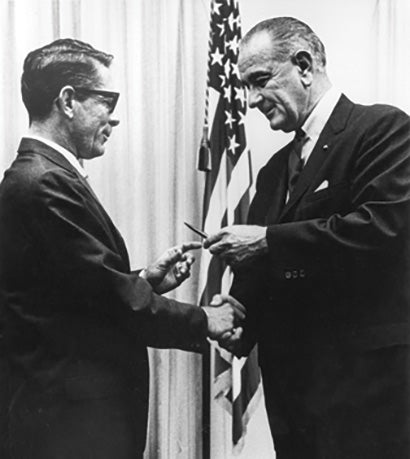
Chase LTD
Less than four years later, President Dwight D. Eisenhower signed the Humane Methods of Slaughter Act, a federal law that minimizes pain during slaughter to avoid prolonged suffering. It’s a law our founders championed, and one that had a catalyzing effect on the animal protection movement.
By 1966, our principled advocacy and hard-hitting investigations of animal dealers who rounded up animals for sale to laboratories had set the stage for passage of the Animal Welfare Act, which now addresses the mistreatment of animals in laboratories, zoos, roadside attractions, puppy mills and the animal fighting industry, among other contexts.
What our founding team may have lacked in resources, they made up for in determination. They opened an office in Washington, D.C., understanding that success in meeting their goals would require a strong and consistent presence at the center of national policymaking in the United States. They prioritized investigation and documentation of animal cruelty, convinced that persuasive facts and evidence would be essential to making the case for change. They pursued an aggressive media strategy to expose the cruelties they targeted, including the suffering of animals in slaughter plants, laboratories, fighting pits, puppy mills, horse training barns and captive wildlife exhibits.
The public got behind us. People began to see animal cruelty not as a fact of the world but as something that could and must change. Our organization grew. With the support of so many advocates, we built hard-hitting campaigns against factory farming, brutal predator control programs, cosmetics testing on animals, street dog culls, whaling, shark finning, trophy hunting and other issues.
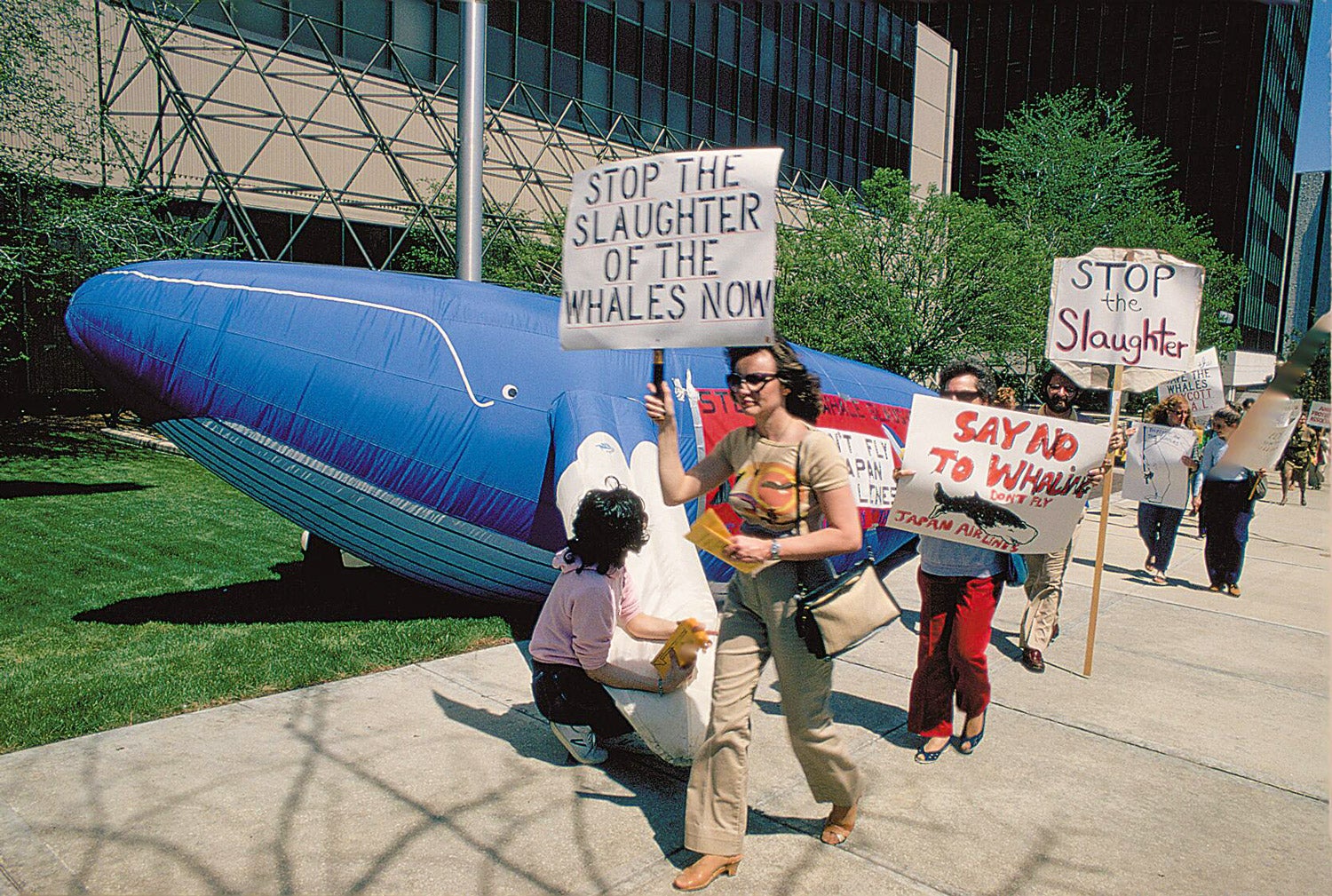
HSUS Historical Images
A potent combination of idealism and pragmatism, of optimism and determination, created our organization and continues to infuse what we do every day. Daring to imagine a different kind of world, where animals are treated with compassion and mercy, our movement is comprised of passionate supporters and experts determined to strike at the root causes of animal cruelty and fight for permanent change. Our staff now works around the world in more than 50 different countries to advocate for laws and policies for animal protection and welfare, rescue animals in crisis, raise public awareness and inspire compassion.
In certain respects, despite the many ways in which we have already transformed the world for animals, we are just getting started. Fighting systemic cruelty to animals has meant designing ways to change these systems and prevent future animal suffering. The Humane Methods of Slaughter Act was just the beginning of our fight to improve the lives of farm animals by addressing the cruelties they suffer and by encouraging people to replace food from animal agriculture with plant-based ingredients. Major designers choosing to end their use of fur at our urging have been taking steps to build a world in which not a single animal is born just to be electrocuted and skinned on a fur farm. Victories bringing protections to wildlife against the rifles of trophy hunters are paving the way toward a world in which no animal is killed for a trophy and bragging rights. Ending the sale of puppies in pet stores at hundreds of localities across the U.S. is part of our long fight to stop puppy mills that treat mother and father dogs as breeding machines and their puppies as mere products. Ending the use of chimpanzees in laboratory research is just one advance among many toward the end of the use of animals in research and testing and the adoption of non-animal methods.
In 70 years, we have gone beyond our original vision, building an organization capable of facing down cruelty to animals whenever and wherever it occurs, challenging the most deeply entrenched and large-scale animal cruelty and suffering. Our determination to create a kinder, more compassionate world for animals and the people who care about them will never waver.
Later this week, I will have the honor of making an announcement that captures the further evolution of our vision for animals.
